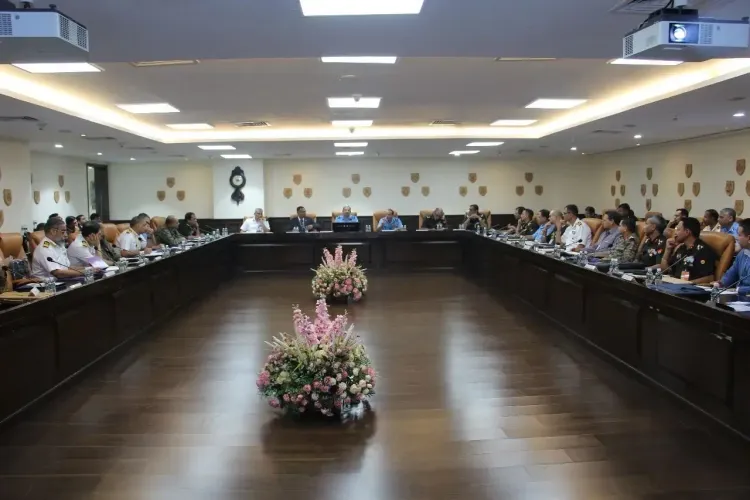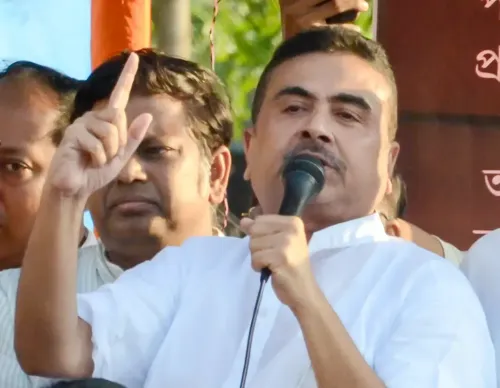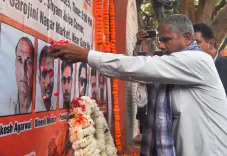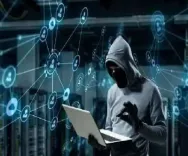How does the Electro Magnetic Board in Delhi enhance jointness in electronic warfare?

Synopsis
Key Takeaways
- The meeting focused on enhancing jointness in Electronic Warfare.
- Key advancements in technology were highlighted.
- Collaboration among military, civil, and academic sectors is crucial.
- Current global conflicts underscore the need for strengthened national security.
- The TNL 2025 document outlines future technological innovations.
New Delhi, Nov 21 (NationPress) The emphasis on jointness and integration in the realm of Electronic Warfare was a key highlight at the Annual Meeting of the Joint Electro Magnetic Board (JEMB), chaired by Deputy Chief of Integrated Defence Staff (Operations) Air Marshal Rakesh Sinha in Delhi, as confirmed by an official on Friday.
The gathering of the JEMB, a Sub Committee of the Chiefs of Staff Committee (COSC), took place on Thursday, focusing on achieving synergy in Joint Operations among the three Services, according to a statement from the Defence Ministry.
Various topics were addressed, including the promotion of Jointness and Integration in Electronic Warfare, EMI/EMC, CUAS Ops, leveraging Emerging Technologies, and Spectrum Management.
The event featured a demonstration of the Electromagnetic Battlespace Management System, aimed at ensuring effective utilization of the spectrum at the Tactical Battlefield Area (TBA).
During the event, the Technical News Letter (TNL) 2025 was released, detailing future technologies that could transform modern warfare.
In his remarks, Air Marshal Rakesh Sinha recognized the contributions of the Services in successfully executing Operation Sindoor and the subsequent joint training exercises which incorporated valuable lessons.
He also commended the advancements made in various niche technology sectors due to the collaborative efforts of Defence PSUs, industry partners, and academia, aligning with Prime Minister Shri Narendra Modi's vision of Aatmanirbharta.
On November 10, a Security Synergy Seminar titled ‘A Whole-of-Nation Approach (WoNA) to Counter Future Conflicts’ was held at the Jaipur Military Station under the auspices of Sapta Shakti Command, in partnership with the Centre for Land Warfare Studies (CLAWS), New Delhi.
Conceived by Lieutenant General Manjinder Singh, Army Commander of the South-Western Command, this two-day seminar sought to promote synergy among the Indian Armed Forces, Central Armed Police Forces, civil administration, academia, and industry to formulate a cohesive national security framework.
During the inaugural address, Lt. Gen Singh emphasized that the global landscape is currently very unstable, characterized by volatility, uncertainty, and shifting power dynamics.
He pointed out recent global conflicts, such as the Russia-Ukraine and Israel-Hamas wars, noting that in these conflicts, various sectors, including economic, civil infrastructure, citizens, information, and cyber, were targeted indiscriminately.








